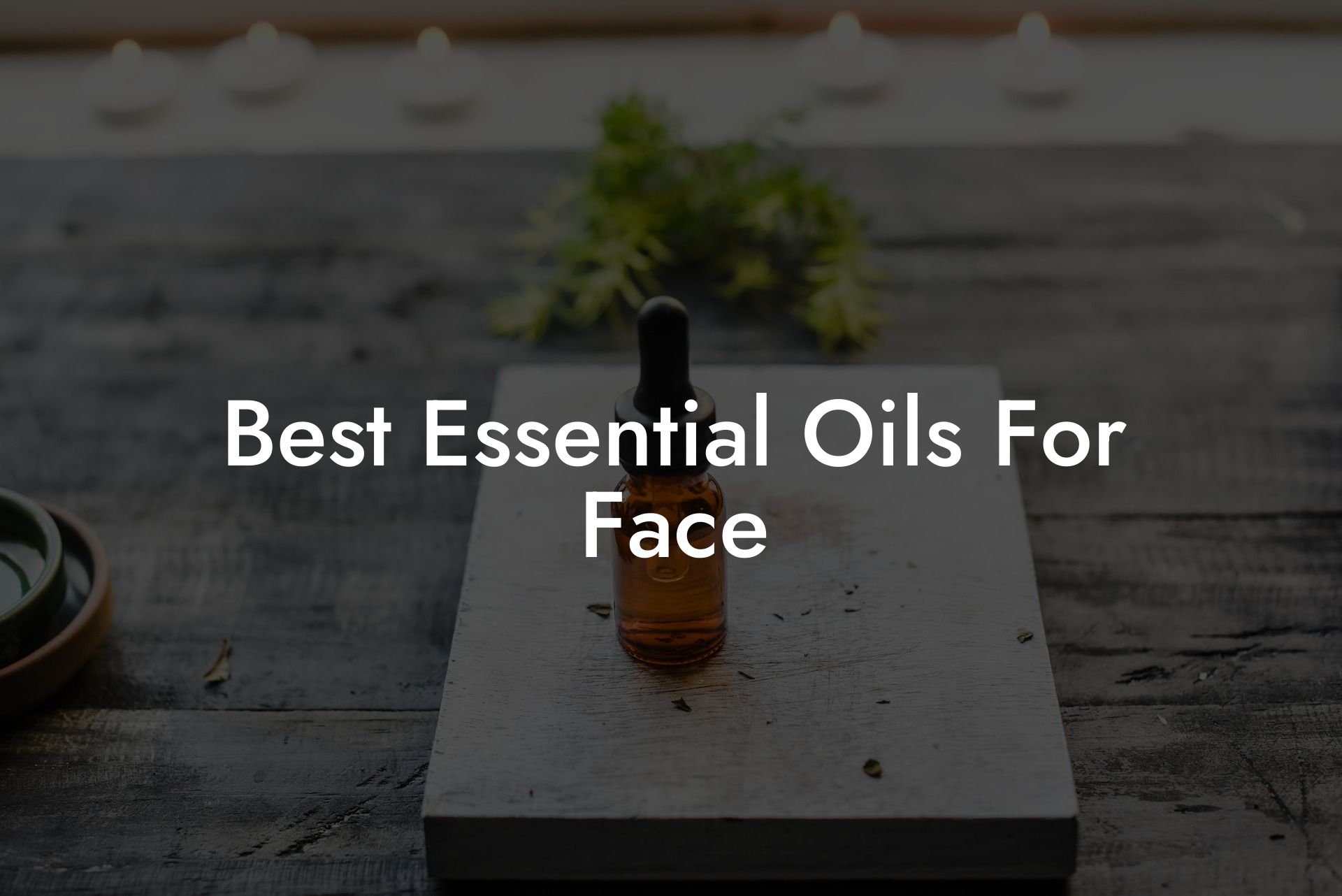Ticks may be small, but their potential to transmit disease makes them a significant concern. During the warmer months, when we spend more time outdoors, the risk increases. Fortunately, nature provides us with an arsenal of essential oils that can help repel these unwanted guests. In this article, we will explore which essential oils are most effective in repelling ticks and how you can use them safely to protect yourself and your loved ones.
Table of Contents
- The Dangers of Ticks
- Lemongrass Oil
- Eucalyptus Oil
- Lavender Oil
- Rose Geranium Oil
- Cedarwood Oil
- Why would someone want to repel ticks?
- Are essential oils a natural alternative to commercial tick repellents?
- Which essential oils are effective against ticks?
- How do I use essential oils to repel ticks?
- How often should I reapply essential oils for tick repellency?
- Can I combine multiple essential oils?
- Are essential oils safe for children?
- Can I use these oils on pets to repel ticks?
- Is it true that lemon eucalyptus oil is as effective as DEET?
- Can I apply the essential oil directly without a carrier oil?
- How do carrier oils enhance the effectiveness of essential oils?
- Can I use essential oils as a tick repellent for my outdoor events?
- Do ticks have a particular aversion to certain scents?
- Can I add essential oils to my shampoo or body lotion for added protection?
- Do essential oils kill ticks or just repel them?
- How do I remove a tick if one attaches despite using repellents?
- Are there any essential oils I should avoid for tick repellency?
- How can I make my yard less inviting to ticks?
- What's the difference between tick repellency and tick resistance?
- In addition to essential oils, what are other natural ways to repel ticks?
- A Natural Solution: Essential Oils
- How to Use Essential Oils Safely for Tick Repellent
- Which Essential Oils Repel Ticks Example
- Which Essential Oils Repel Ticks Frequently Asked Questions
The Dangers of Ticks
Ticks are not only annoying parasites, but they can also spread serious diseases like Lyme disease, Rocky Mountain spotted fever, and Powassan virus. These diseases can have lasting effects on a person’s health, such as joint pain, neurological issues, and fatigue. This is why it’s crucial to take preventative measures and protect yourself from tick bites.
A Natural Solution: Essential Oils
Essential oils offer a natural, effective way to repel ticks without having to rely on harsh chemicals. They are derived from plants and have been used for centuries for various health and wellness purposes. Let’s explore some of the most effective essential oils that can help keep ticks at bay.
Lemongrass Oil
Lemongrass oil has a lovely citrus scent and contains natural compounds that help deter ticks and other pests. This oil can be diluted with a carrier oil and applied directly to the skin for protection.
Eucalyptus Oil
Eucalyptus oil has a refreshing, invigorating scent and is effective in repelling ticks. A study published in the Journal of Medical Entomology found that eucalyptus oil provided protection against ticks for up to six hours.
Lavender Oil
With its calming scent, lavender oil not only helps to relax and soothe the mind but also acts as a natural tick repellent. Lavender oil can be used directly on the skin or added to a spray bottle with water to create a tick repellent spray.
Rose Geranium Oil
Rose geranium oil is one of the most effective essential oils for repelling ticks. It contains a compound called geraniol, which has been proven to ward off ticks and other pests. This pleasant-smelling oil can be applied directly to the skin or used in a spray bottle with water.
Cedarwood Oil
Cedarwood oil is another great option for repelling ticks, with its warm, woody scent. It can be applied directly to the skin or used in a diffuser or spray bottle to create a barrier around your outdoor space.
How to Use Essential Oils Safely for Tick Repellent
Before using essential oils as a tick repellent, always ensure they are properly diluted with a carrier oil, such as coconut or almond oil, to prevent any irritation or adverse reaction on the skin. Typically, a 3-5% dilution (15-25 drops of essential oil per 1 ounce of carrier oil) is recommended for adults. Children and those with sensitive skin should use a 1-2% dilution (5-10 drops of essential oil per 1 ounce of carrier oil).
Which Essential Oils Repel Ticks Example
Imagine you’re planning a day outdoors with family and friends, and you want to create a tick repellent to keep everyone protected. You could create a simple spray by filling a 4-ounce spray bottle with distilled water and adding 15 drops of lavender oil, 15 drops of eucalyptus oil, and 15 drops of rose geranium oil. Shake well before each use, and spray on clothing, shoes, and any exposed skin before heading out.
Which Essential Oils Repel Ticks Frequently Asked Questions
Why would someone want to repel ticks?
Ticks are notorious for carrying various diseases such as Lyme disease, anaplasmosis, and babesiosis. Repelling them reduces the risk of these diseases, ensuring safer outdoor experiences.
Are essential oils a natural alternative to commercial tick repellents?
Yes, essential oils are a natural alternative derived from plants. Many individuals prefer them to avoid the chemicals often found in commercial repellents.
Which essential oils are effective against ticks?
Several essential oils have shown repellent properties against ticks, including lemon eucalyptus, cedarwood, lavender, peppermint, geranium, and rosemary oils.
How do I use essential oils to repel ticks?
Dilute the chosen essential oil with a carrier oil, such as almond or coconut oil. Apply this mixture directly to the skin, or spray onto clothing, before heading outdoors.
How often should I reapply essential oils for tick repellency?
As natural solutions, essential oils may not last as long as commercial repellents. Generally, reapply every 1-2 hours, or more often if sweating or swimming.
Can I combine multiple essential oils?
Absolutely! Combining oils can enhance the repellent effect and create a pleasant aroma. For instance, a mix of lavender and peppermint can be both effective and refreshing.
Are essential oils safe for children?
Most essential oils are safe for children when properly diluted. However, always conduct a patch test first and consult with a pediatrician before widespread use.
Can I use these oils on pets to repel ticks?
Some essential oils are safe for pets, but not all. For instance, while cedarwood might be safe for both dogs and cats, peppermint oil is not recommended for cats. Always consult with a veterinarian before using any essential oil on pets.
Is it true that lemon eucalyptus oil is as effective as DEET?
There are studies suggesting that oil of lemon eucalyptus can be as effective as low concentrations of DEET against mosquitoes. Its effectiveness against ticks is also promising, but remember that its duration might be shorter than DEET.
Can I apply the essential oil directly without a carrier oil?
Direct application is not recommended. Essential oils are potent, and undiluted application can lead to skin irritation. Always use with a carrier oil to ensure safety.
How do carrier oils enhance the effectiveness of essential oils?
Carrier oils help in diluting essential oils to a safe concentration for skin application. They also aid in spreading the essential oil more evenly over the skin, increasing its effectiveness.
Can I use essential oils as a tick repellent for my outdoor events?
Yes, you can create a spray mixture of essential oils and water to mist over outdoor areas. This will not only help in repelling ticks but also create a pleasant aroma for your event.
Do ticks have a particular aversion to certain scents?
Ticks navigate primarily using their sense of smell. They dislike the scents of many essential oils, making these oils effective repellents.
Can I add essential oils to my shampoo or body lotion for added protection?
Certainly! Adding a few drops of tick-repellent essential oils to your daily products can give you an added layer of protection, especially during tick season.
Do essential oils kill ticks or just repel them?
Most essential oils repel rather than kill ticks. Their strong scents disrupt the tick’s ability to locate hosts. However, some oils might have compounds that can be toxic to ticks in high concentrations.
How do I remove a tick if one attaches despite using repellents?
Use fine-tipped tweezers to grasp the tick as close to the skin’s surface as possible. Pull upward with steady, even pressure. Thoroughly clean the bite area and your hands with rubbing alcohol or soap and water. Never crush a tick with your fingers.
Are there any essential oils I should avoid for tick repellency?
Not all essential oils are effective against ticks. Also, some might cause skin sensitivities. Always do a patch test, and if you notice any irritation, discontinue use.
How can I make my yard less inviting to ticks?
While essential oils can repel ticks on your person, making your yard inhospitable to them requires broader measures. Keep grass short, remove leaf litter, and consider plantings that don’t attract deer, a common carrier of ticks.
What’s the difference between tick repellency and tick resistance?
Tick repellency means that ticks are deterred from coming into contact with you. Tick resistance means that, even if a tick attaches, it’s less likely to transmit diseases.
In addition to essential oils, what are other natural ways to repel ticks?
Wearing light-colored clothing, tucking pants into socks, and avoiding tick-infested areas are all effective methods. Garlic and apple cider vinegar, when ingested, are believed by some to repel ticks, though scientific evidence is limited.
Remember, while essential oils can be an effective and natural way to repel ticks, no method is 100% foolproof. Always check for ticks after being outdoors, especially in wooded or grassy areas.
Armed with knowledge about the power of essential oils in repelling ticks, you can now enjoy your outdoor activities with confidence, knowing that you are protected from these pesky parasites and the diseases they can transmit. If you found this article helpful, don’t hesitate to share it with friends and family to help them fight ticks naturally and effectively. For more information on essential oils and aromacology, explore our other guides on the Oshu Oils blog and discover our range of Artisan Essential Earth Oils, expertly blended to improve your wellbeing.





















